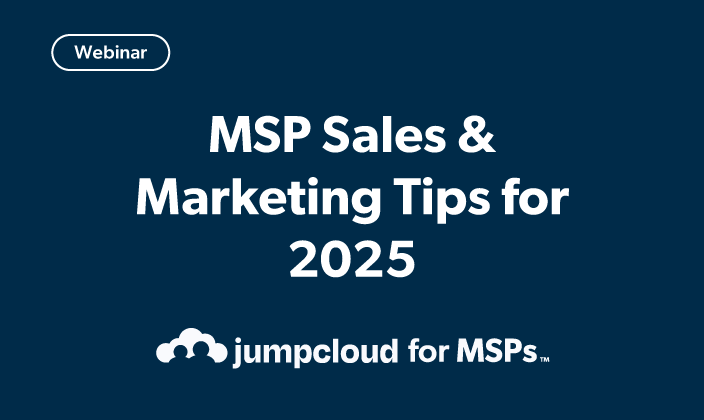Can your small- or medium-sized business (SMB) withstand a cyberattack? The reality is that nearly 43% of cyberattacks target SMBs, and the average cost of a breach soars to $120,000. Yet, most SMBs lack the resources, budget, or in-house expertise to build a robust cybersecurity framework.
This is where Managed Service Providers (MSPs) step in, not just as IT support, but as essential cybersecurity partners. Powered by advanced tools and expertise, MSPs deliver the kind of robust, enterprise-grade security that SMBs desperately need to thrive in today’s threat landscape.
SMBs Are Easy Targets for Cybercriminals
Cyber threats are no longer reserved for large corporations. SMBs often handle sensitive customer data but underinvest in security due to resource constraints or lack of know-how. This makes them easy targets.
Key challenges SMBs face include:
- Lack of Budget or Expertise: Many SMBs can’t afford to hire full-time cybersecurity experts or build internal teams.
- High Cost of Recoveries: The average breach costs SMBs $120,000, and for many, this could be the final nail in the coffin.
- Rising Threats: Attack vectors like ransomware, phishing, and excessive permissions exploitation dominate the threat landscape.
Without proactive measures, these vulnerabilities expose SMBs to operational and financial ruin.
The Transformative Role of MSPs
MSPs are no longer just IT firefighters reactive to technical issues. They’ve evolved into proactive cybersecurity defenders, offering SMBs access to enterprise-level services without the burden of building an in-house team.
Here’s how MSPs address SMB vulnerabilities:
1. Access to Advanced Security Tools
MSPs provide cutting-edge security technologies traditionally reserved for large enterprises:
- SIEM (Security Information and Event Management): Monitors and analyzes security data for threats in real time.
- EDR (Endpoint Detection and Response): Detects and mitigates threats at the device level.
- Multi-Factor Authentication (MFA): MFA ensures only the right people gain access to sensitive systems.
These tools alone can cost SMBs hundreds of thousands of dollars if managed independently. An MSP consolidates them into a subscription-based model, reducing costs while increasing security.
2. Proactive Threat Management
Modern MSPs rely on proactive strategies rather than reactive solutions:
- Continuous Monitoring: 24/7 oversight to detect and respond to threats as they emerge.
- Vulnerability Scanning: Regular scans to identify risks in your systems before they can be exploited.
- Incident Response Plans: MSPs help SMBs prepare for breaches with executable plans that reduce downtime and costs.
This proactive approach ensures threats are mitigated before they cause serious damage.
3. Compliance and Regulation Support
Many SMBs must adhere to strict compliance standards (e.g., HIPAA, GDPR). Falling short can lead to hefty fines and reputational damage. MSPs bridge that gap by:
- Automating compliance audits.
- Ensuring your organization meets regulatory standards.
- Providing documentation and evidence for audits.
They not only secure your systems but also protect your reputation and legal standing.
4. Security Awareness Training
Most SMB vulnerabilities stem from human error, such as falling for phishing attacks. MSPs offer security awareness training to help employees:
- Recognize phishing and social engineering techniques.
- Follow password best practices.
- Understand their role in maintaining cybersecurity.
Engaged, educated employees are your first line of defense against cyber risks.
5. Strategic Partnership for Growing Threats
Cyber threats evolve daily. MSPs adapt to this landscape by staying ahead of new risks and helping SMBs future-proof their operations. Their expertise enables SMBs to focus on growth while ensuring their IT infrastructure remains resilient.
Why SMBs Need MSPs Now, Not Later
The advantages of working with MSPs go beyond tools and technology. They provide peace of mind, allowing business owners to focus on what they do best while leaving security to the experts.
By proactively partnering with MSPs, your business can:
- Reduce IT downtime, saving time and money.
- Enhance your client’s trust through secure operations.
- Scale operations confidently without worrying about security gaps.
Evaluate Your Security Posture Today
With threats becoming more sophisticated, it’s no longer optional for SMBs to invest in cybersecurity. Partnering with a Managed Security Service Provider (MSSP) or security-focused MSP may be the difference between thriving or falling victim to costly attacks.
MSPs and tools like JumpCloud allow you to seamlessly protect users, devices, and data. With features like centralized security, cross-OS device management, and MFA, JumpCloud empowers MSPs to elevate their cybersecurity offerings.





